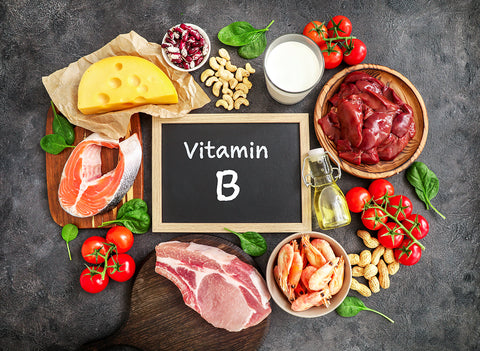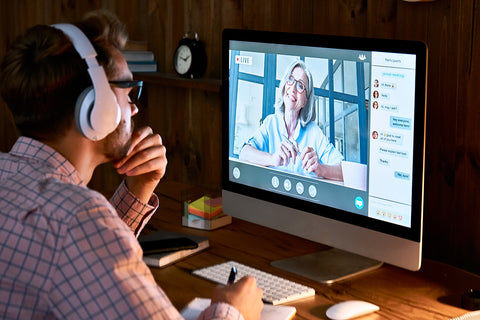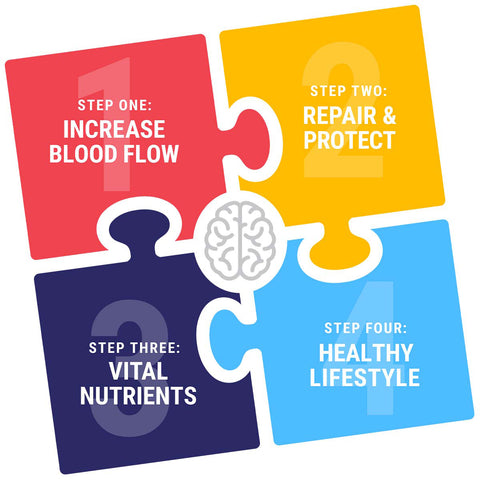Education

What is your go-to method for stress relief? Do you take a walk? Listen to music? Do you binge-watch Netflix? Everyone experiences stress and has a way of dealing with it. What might be a minor issue for some can be completely overwhelming for others. While there is no one-size-fits-all response, some ways to relieve stress can be unhealthy and even harmful. If any of these behaviors describe you, perhaps it’s time to consider some new stress-relief strategies.

Our research shows that people that stay active and play old fashioned games such as crossword puzzles score better on cognitive exams. It is therefore very important to keep your brain engaged in mental stimulation activities as you age. Think of these seven activities like exercises for your brain.

A few years have passed since the COVID-19 pandemic, and the long-term impact of the virus on health & wellness continues to confuse doctors and scientists. Particularly concerning for doctors and patients alike are lingering side effects, such as memory loss, reduced attention and an inability to think straight. During these uncertain times, your mental well-being is more important than ever!

According to the Harvard School of Public Health, only a fraction of U.S. adults currently gets the recommended daily intake of all B vitamins from their diets alone. This could be due to a number of factors including normal aging, dietary choices or chronic digestive health issues.

If you read books while pedaling a stationary bike, add blueberries to your favorite smoothie or play sudoku, congratulations - you just might be a “super-ager.” Super-agers are baby boomers and seniors who have cognitive abilities comparable to people decades younger. A growing body of research suggests that we can all boost our odds of joining their ranks by tweaking our daily habits and rethinking our views on aging.

Learning something new at any age has a significant and permanent impact on your brain. Learning new skills physically changes your brain. Learning takes place mainly at synapses, the junctions between neurons in the brain. On the contrary, being bored, which occurs when you don’t learn new things very often, can be dangerous to your brain health and overall well-being.

It’s time for new beginnings and a time to turn over a new leaf. No matter what turning over a new leaf looks like for you, we can all agree that there are things we can do better in the new year. How about making your BRAIN HEALTH a top priority? Procera Health exists to help you do that. Below is a short overview of the 4 keys that can improve your brain health in the year ahea

Ready or not, daylight savings time is just around the corner! The disruption to your sleep schedule can create a feeling similar to jet lag. Sleep experts say that time changes in the fall and spring inevitably alter people’s schedules and it can take the body up to an entire week or more to adjust. During this adjustment period, falling asleep earlier and/or waking up later is harder to do. Luckily, we have a few tricks to help you regulate and minimize the impact of drowsiness and sleepiness. Keep reading to uncover these 4 easy to-do tips.

In today's technology-driven world, our increasing dependence on digital devices poses a threat known as "digital amnesia." As we rely more on technology to remember information like phone numbers and directions, our memory capabilities can suffer. This article explores the impact of technology on memory and provides five practical tips to boost your cognitive abilities and combat digital amnesia.

Summer is a great time to engage in activities that can benefit your brain health. There are many different activities you can do, such as hiking, swimming, playing outdoor games, and more. These activities can help improve your memory, cognitive function, and immune response, and even help balance your mood!

In the digital era, our lives are interwoven with technology, making it an indispensable part of our daily routines. While this connectivity has undoubtedly enriched our lives, it has also brought along an array of distractions that can hinder our ability to stay focused. In this article, we will explore the impacts of digital distractions on cognitive function, mood balance, stress levels, and sleep habits, as well as practical tips to help you regain and maintain focus amidst all the digital noise.

B vitamins are a group of water-soluble vitamins that are considered “essential,” meaning we must get them from our diets because our bodies cannot make them on their own. According to the Harvard School of Public Health, few adults currently gets the recommended daily intake of B vitamins from their diets alone. B vitamins are most valued for their ability to help turn other nutrients into energy, maintain a healthy metabolism, and for supporting nerve function, liver function, skin health, eye and brain health. In this article, we will dive into all eight forms of B Vitamins, their function and benefits, plus explore some of the ways you can get more B vitamins through your diet and supplementation.




